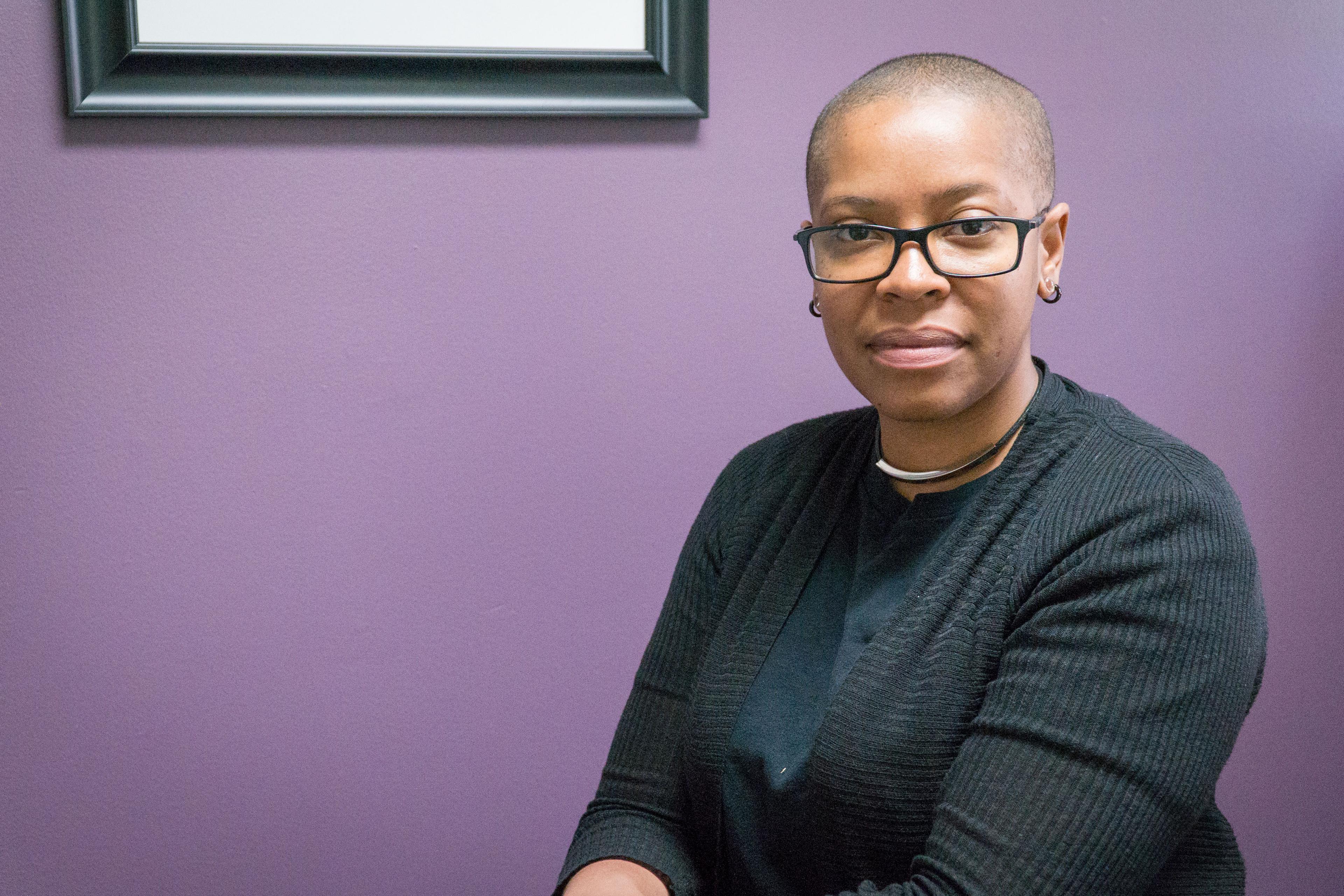

The rectangular green trunk has sat in Tya Alisa Anthony’s Lakewood office for several years. She calls it her “cabinet of curiosity.”
Inside are photographs, maps, buttons, eyeglasses, journals, stripes of fabric and lace, and artwork. It’s basically chock full of artifacts of Anthony’s life and lineage.
This personal archive got its start in 2013, while Anthony attended Rocky Mountain College of Art & Design, where she now works as the school’s student life coordinator. She had been a commercial photographer for a decade when she decided to go back to school to fine-tune her skills. But she found herself “moving from portraits outside of myself to turning the camera onto myself.”
She started journaling to “figure out why, at 30-plus-years-old [I was] going back to college,” and to ruminate what she wanted her art to say and who she wanted to speak to.
“I realized I had to speak for myself first,” Anthony says, and that’s when all these questions about her identity and her family heritage bubbled up.
She was obsessed with who she was and “finding the layers that created who I am or what I present all derive from the history of my family.”
This quest was founded in a nomadic childhood. An “Army brat,” Anthony’s family moved a lot, including a stint abroad in Germany and Europe. Anthony often “felt like an outsider.”
“Because I was always the only black person in my academic life — until much later, when there would be like one or two other African-American classmates,” she says.
Her father handed her his camera when she was 12 and she found comfort viewing the world through its lens: “[He said], ‘Ok, you’ve got one roll of film. You’ve got 35 shots. Go ahead and have fun and then we’ll get it developed.’”
From then on, Anthony always had a camera in her hand.
She had heard some fantastical stories growing up, including that she had descents from China.
“There was a joke that my father was a descent of Genghis Khan,” Anthony says, “which we found hilarious. But through DNA testing, we found out that’s not true.”

She did know that her maternal side had migrated to the U.S. from the island of Barbados. So the hunt was on. She collected old photographs and obituaries of her ancestors from her mother. She searched for “connections between the past and present.” And she created artwork that represented fictional characters in her family history to “fill the gaps.”
“I found that to be just as fulfilling in searching for identity,” she says. “Your imagination weaves in and out through your identity.”
The trunk, which was part of her senior project at RMCAD, has influenced other work.
“Once I was able to search and research my own history, that did bring out an interest in others’ histories,” Anthony says.
In 2015, she collaborated with Denver artist Thomas “Detour” Evans and Paul Hamilton, who owns a large collection of African art, on “They Still Live.” These photographs featured people “interested and obsessed with finding out their true genetic history,” each subject paired with ancient masks and artifacts.
Anthony has used items from the trunk as research, and she’s recently pulled Tarot cards, prints and drawings for a new project she’s working on. She got some answers by digging into her family history, a process that Anthony says has been cathartic.
“It allows me to move forward in my intention for my art, and it does feel like a weight has been lifted,” Anthony says. “I think that’s why it stays in my office in the corner. It’s one of those things that’s a part of me, but distant.”
Someday though, she’d like to pass it onto her children.
You can see Anthony’s work through June 2, 2018 at the Colorado Photographic Arts Center in Denver or in the exhibition “Pink Progression” at the Metropolitan State University of Denver’s Center for Visual Art May 31 through Aug. 18, 2018.









